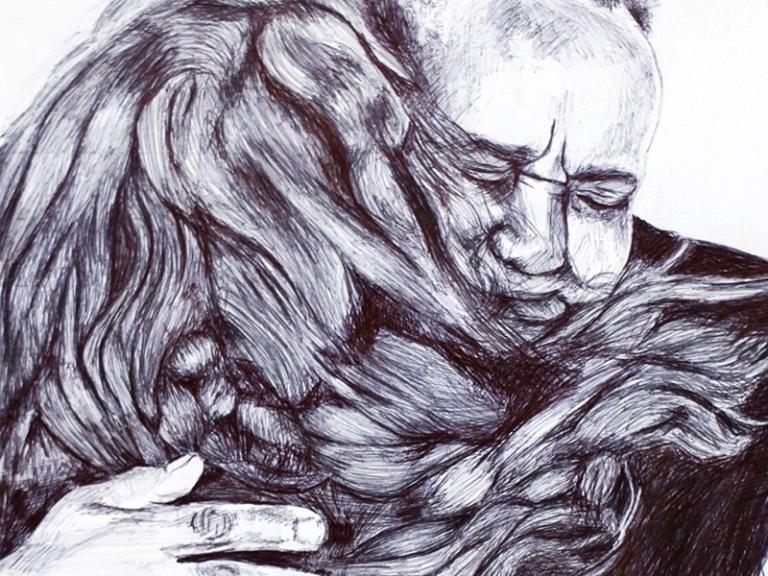
Professionalism can be the enemy of Christian compassion.
A certain extent of professionalism is appropriate in many Christian careers. It is a necessary feature of self-care. It helps you keep sane and to serve the people you are caring for the best. Professionalism must always be kept within limits by Christians, however, no matter what field they are working in. Excessive professionalism can strip our humanity away.
Professionalism has little if any home in pastoral ministry.
I am not a pastor, but I know many pastors personally as friends. One of the things that makes their role challenging is precisely that pastors are not professionals dealing with patients or clients, they are more like a father caring for their grown up children and friends.
There is a strong drive towards professionalism in modern pastoral ministry, especially as churches grow in size. But Terry Virgo who is a wise and successful christian pastor founded a movement that grew to over 1500 churches and rejected the world’s push towards pastoral professionalism wholeheartedly. Terry explains in these two short videos that at the heart of the christian life, and the life of the pastor are genuine relationships of care and love. Not a client customer relationship. The next two videos talk about the foundation of relationships for all Christians and pastors. In the second video he states that it is absolutely wrong for pastors to keep themselves distant from the people in the congregation.
The process of professionalism can ultimately lead us away from Jesus’ desire that we be known for our love not just for pastors but for any Christian in a profession. ( see John 13:35)
My own professional life has been spent as a doctor. And for us health care professionals, as I have recently pointed out in an article I wrote for the Christian Medical Fellowship we have a particular risk of losing human connection and compassion. Here is a section of what I said there:
Busy on-calls, relentless demands, and increasing seniority can lead to an absence of any emotional involvement or humanity. One of the biggest challenges facing Christian health professionals is the battle to retain compassion.
Compassion is defined in the Miriam Webster Dictionary as ‘sympathetic consciousness of others’ distress together with a desire to alleviate it.’ Compassion is when love moves beyond mere emotion and motivates us to action. Medicine must never become merely a career where our reason to work is simply to earn money, or just to get through the day.
Jesus experienced the pressures of dealing with crowds and their demands. However busy A&E is on a Friday night, there won’t be 5,000 people there thronging around a single healer and hanging on their every word. When Jesus looked at the crowds he didn’t see a faceless multitude but suffering individuals, made in his image, who he had come to make the ultimate sacrifice to save. On one occasion we are told Jesus ‘saw a great crowd, and he had compassion on them and healed their sick’ (Matthew 14:14). Perhaps the greatest privilege of being a doctor or other health professional is that we are called to show compassion like Jesus and be involved in his healing work.
We rightly speak a lot about ethical issues at CMF. But if we also forget to emphasise Christian love, we will miss the mark as much as those who compromise biblical truth in a misguided attempt to be loving. As John Stott put it, ‘Truth becomes hard if it is not softened by love; love becomes soft if it is not strengthened by truth’. (3)
. . .The dilemma faced by all health professionals is how to deal with extreme challenges; balancing the need to be rational, while retaining compassion, which at its core is an emotion. Too much and too little emotion is a problem. A journalist explained this dichotomy well:
‘Doctors, of course, have to be compassionate and dispassionate at the same time. A doctor who was completely indifferent to the sufferings of others would be a public menace; but a doctor who felt every patient’s suffering as his own would have a short and miserable career.’ (4)
Compassion is not about time. It isn’t what is said, but the way it’s said. It’s about remembering you are treating a person made in the image of God. It is about understanding the emotions your patient and their family are feeling.
Compassion is the nurse who pauses and comforts you at a difficult moment during an admission. It’s the doctor who appreciates the emotional impact of a diagnosis and gently explains the implications, rather than assuming you understand. You might be overly familiar with the illness you are treating, but to them it may feel like a tsunami threatening to destroy their whole family . . .
How do you retain humanity and compassion in a busy clinical setting? Surely the answer is to consider the words of Jesus, ‘Do to others what you would have them do to you.’ (6)
If you are about to say or do something that is not how you would want to be treated yourself, it is time to have a rethink.
READ THE REST
More On Compassion
- Jesus gospel of social justice Much of modern Evangelicalism and in particular its views on social justice would sound alien…
- Who will you visit this weekend? When you look at a crowd of people what do you see? A potential threat…
- Jesus’ anger at hardness of heart (Mark 3:5) And he looked around at them with anger, grieved at their hardness of heart,…
- AIDS and the Evangelical – a case study in compassion and social justice I was ten when AIDS was first clinically observed. I remember that early attitudes to…
- Can a Christian get depressed? All over the English speaking world today, as a result of the tragic death of…
- Real men DO cry A couple of weeks back I was on my way to the Dwell conference, an…
- Mother’s Day Sermon – Comfort Like a Mother This sermon was preached by me on the UK’s Mother’s Day, which was on March…
Don’t miss the series “Jesus Commands”
Jesus said that if you obey him your life will be established on a firm foundation when the storms come.
Follow the link to read all the articles, or subscribe to our newsletter to be notified as they are published.
Complete the form in the top of the right hand column, or below if you are visiting on a mobile device.
 Adrian Warnock is author of Raised with Christ (Crossway, 2010) and Hope Reborn (Christian Focus, 2014). He blogs at Patheos and served on the leadership team of Jubilee Church, London. Adrian is a medical doctor and was diagnosedwith chronic lymphocytic leukemia in May 2017. He is passionate about helping Christians learn to approach suffering with hope and compassion. Adrian began a series on the commandments of Jesus in January 2018.
Adrian Warnock is author of Raised with Christ (Crossway, 2010) and Hope Reborn (Christian Focus, 2014). He blogs at Patheos and served on the leadership team of Jubilee Church, London. Adrian is a medical doctor and was diagnosedwith chronic lymphocytic leukemia in May 2017. He is passionate about helping Christians learn to approach suffering with hope and compassion. Adrian began a series on the commandments of Jesus in January 2018.

















